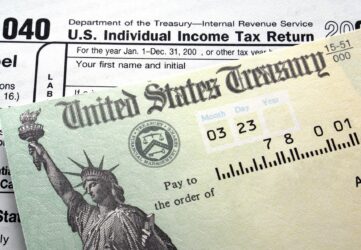Small business owners will have one more item on their compliance to-do list when the Corporate Transparency Act (CTA) takes effect.
The CTA, enacted as part of the Anti-Money Laundering Act of 2020 (AMLA), places new reporting requirements on many business entities in an effort to expose illegal activities, including the use of shell companies to launder money or conceal illicit funds. Around 30 million small businesses will be impacted by the law, which will establish a federal database of information, furnished by “reporting companies,” that will be accessible to certain authorities and organizations.
A final rule has been issued stating how the new law will be implemented to help businesses understand whether the law applies to them, how to comply, and which agencies will have access to the information they must report. CTA violations carry civil and criminal penalties, including imprisonment.
Why Was the CTA Passed?
The CTA was passed as part of the National Defense Authorization Act for Fiscal Year 2021. It directs the US Department of the Treasury’s Financial Crimes Enforcement Network (FinCEN) to gather information from private companies about their owners and controlling persons. Acting Director Himamauli Das said, “FinCEN is taking aggressive aim at those who would exploit anonymous shell corporations, front companies, and other loopholes to launder the proceeds of crimes, such as corruption, drug and arms trafficking, or terrorist financing.”
What Does the CTA Require?
Effective January 1, 2024, the CTA requires that certain businesses disclose to FinCEN information about the company, its beneficial owners, and in some cases, the company applicant.
- Reporting companies created before January 1, 2024, have until January 1, 2025, to file an initial report.
- Reporting companies created after January 1, 2024, will have thirty days after creation or registration to file a report.
Small business organizations, such as the National Small Business Association (NSBA) and the National Federation of Independent Businesses (NFIB), oppose the CTA, calling it cumbersome, intrusive, overly punitive, and unconstitutional. NSBA states that small businesses are unfairly impacted because they usually do not have compliance teams or staff attorneys.
Does the CTA Require My Business to Report?
The CTA applies to companies that are created by filing a document with a state authority. Typically, this includes corporations and limited liability companies. Depending on the state, it could also include limited partnerships, professional associations, cooperatives, real estate investment trusts, and trusts. In addition, the CTA applies to non-US companies that are registered to operate in the United States.
The CTA exempts around two dozen categories of companies, including:
- Companies that are publicly traded
- Companies with more than twenty full-time US employees
- Companies that filed a previous year’s tax return showing more than $5 million in gross receipts or sales
- Companies that have an operating presence at a physical US office location
- Companies in regulated industries, such as banking, utilities, or insurance
What Information Must Be Provided in the Reports?
The CTA requires reporting on the company, its owners, and its applicant.
- Company: Name, DBA names, principal business address, state of formation, and taxpayer identification number or FinCEN identifier.
- Owner: Full legal name, date of birth, residential address, and identification number from a state-issued ID (such as a driver’s license or passport), along with a copy of the ID document.
- Applicant: The same information as a beneficial owner (only required for businesses created on or after January 1, 2024).
Who Has Access to FinCEN BOI Reports?
The CTA authorizes FinCEN to disclose Beneficial Ownership Information (BOI) to five categories of recipients:
- US federal, state, local, and tribal government agencies
- Foreign law enforcement agencies, judges, prosecutors, and other authorities
- Financial institutions
- Federal regulators
- US Department of the Treasury
Are There Penalties for Noncompliance with the CTA?
Penalties for noncompliance can include fines of $500 per day, up to $10,000, and imprisonment for up to two years. Civil and criminal liability may be avoided if an individual corrects inaccurate information within ninety days.
Get Help with CTA Reporting Requirements
Understanding how the CTA applies to you and your business can be overwhelming, especially if terms like “beneficial owner” and “substantial control” seem vague. But compliance is critical for business owners who want to avoid possible sanctions. We can help you determine whether the CTA applies to your business and how to meet its reporting requirements. With the law’s effective date approaching, Schedule a consultation with the Law Office of Jason Carr today for more information and assistance with your CTA compliance strategy.






